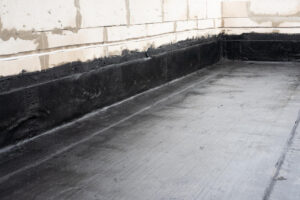Roofing is one of the most essential components of a home’s structure, serving as the first line of defense against weather and environmental elements. When it comes to repairs, maintenance, or complete replacements, many homeowners face the common dilemma: Should they tackle the job themselves or hire professional roofing contractors? While the DIY approach can seem appealing due to potential cost savings, it’s essential to consider several key factors before climbing up the ladder.
Understanding the Scope of Roofing Projects
Roofing isn’t just about replacing a few shingles. Depending on the extent of the project, it can involve structural assessments, material selection, and precise installation techniques. Professional roofing contractors bring specialized knowledge, licensing, and experience to assess problems that may not be visible to the untrained eye. For instance, water damage beneath shingles or poor ventilation in the attic may go unnoticed in a DIY inspection but can lead to serious long-term issues.
DIYers may overlook such complexities, especially if the roofing project is more than a minor patch. Even if someone is handy around the house, roofing often requires specific skills, not to mention an understanding of local building codes and safety protocols.
Safety First: A Critical Consideration
Working on a roof involves real risks. Falls from roofs are one of the most common causes of serious injuries among homeowners undertaking DIY projects. Unlike professionals, most homeowners lack the proper safety equipment, training, and insurance coverage. Roofing contractors typically have comprehensive safety protocols in place and liability insurance that protects both workers and the homeowner.
Even for those who feel comfortable with heights, unpredictable weather, roof pitch, or fragile tiles can make a DIY roofing job hazardous. Regarding safety, there’s a strong argument for leaving roofing projects to experienced hands.
Time and Efficiency
An inexperienced person can complete a full roof replacement or significant repair in days or even weeks. This extended timeline not only prolongs the disruption to your home life but can also leave the roof vulnerable to weather damage. On the other hand, a professional team can often finish the same job in a fraction of the time.
Moreover, contractors have access to commercial-grade tools and materials that might be more difficult or expensive for a DIYer to obtain. Working efficiently while maintaining quality standards is a significant advantage of hiring professionals.
Cost Factors and Long-Term Value
Many homeowners turn to DIY methods thinking they’ll save money. While it’s true that labor costs are eliminated when doing the work yourself, this doesn’t always translate to overall savings. Mistakes made during a DIY roofing project can be costly in materials and future repairs. Additionally, improper installation can void the manufacturer’s warranties on roofing materials, leaving homeowners unprotected if problems arise.
Professional contractors often offer warranties for both labor and materials, giving peace of mind that isn’t available with DIY work. In the long run, this assurance level can result in better value, particularly for high-investment roofing jobs.
Skill Level and Material Knowledge
Another area where professionals shine is knowing which materials are best for your climate, budget, and roof design. Roofing contractors stay up-to-date with the latest materials and techniques, ensuring that the chosen system performs optimally and lasts as long as intended.
A homeowner might choose materials based on cost or appearance without fully understanding their performance characteristics. For example, asphalt shingles may be standard, but they might not be ideal in regions with extreme temperatures or high humidity. Understanding these subtleties is part of what makes a contractor’s expertise so valuable.
Warranty and Accountability
One of the often-overlooked benefits of hiring professionals is accountability. The homeowner is solely responsible for the outcome if something goes wrong after a DIY project. On the contrary, a reputable contractor is accountable for their work and will typically return to fix any issues within the warranty period.
Additionally, many insurance companies prefer work done by licensed contractors, especially regarding roof damage claims. This can be a deciding factor in the case of severe weather events or unexpected leaks in the future.









